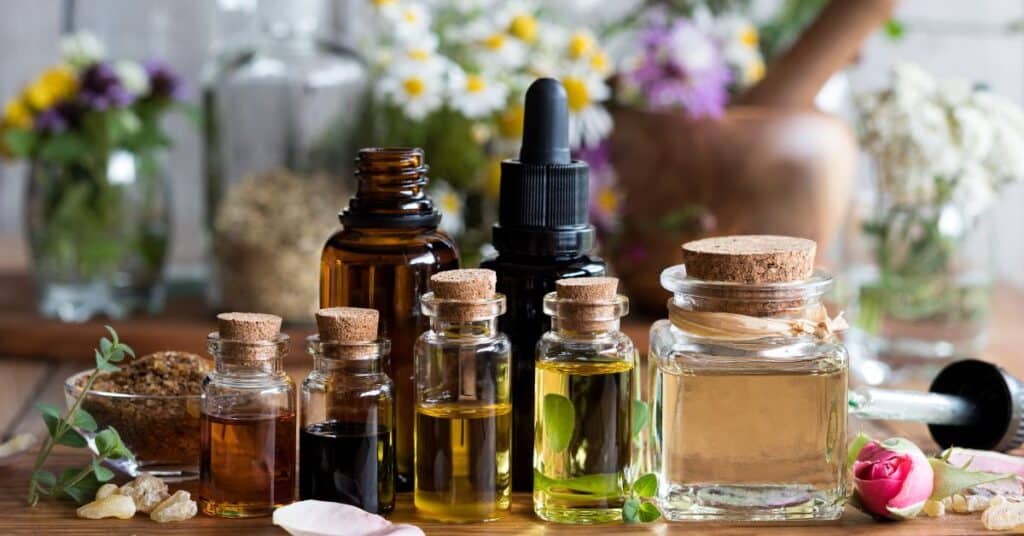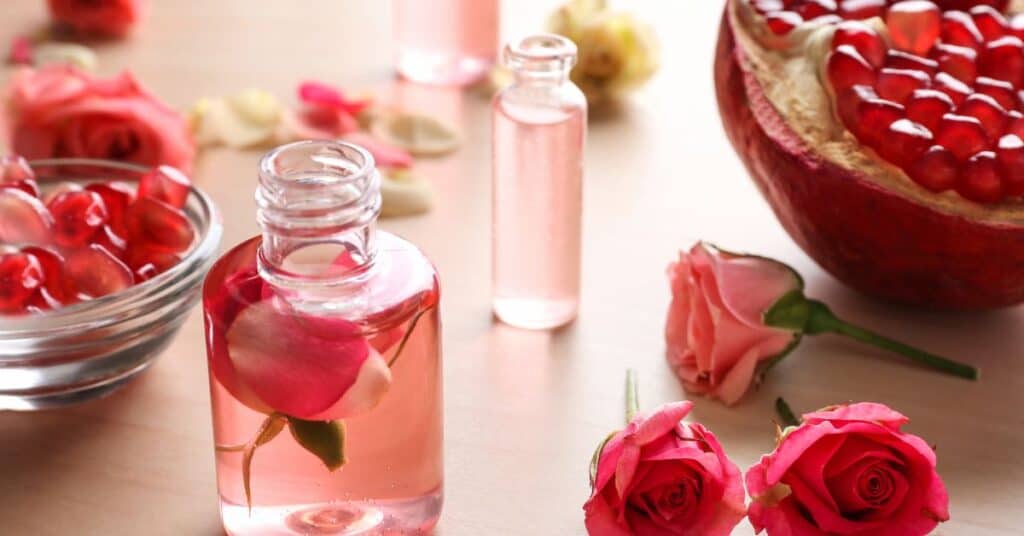Table of Contents
- Can Fragrance Oil Cause Yeast Infection
- Can Oil Cause Yeast Infections
- What Is The Best Fragrance Oil For A Yeast Infection
- Can Personal Fragrance Oil Cause A Yeast Infection
- What Gives Rise To Repeated Yeast Infections
- Can Yeast Infections Be Prevented
- Final Thought
Do you want to know if fragrance oil causes yeast infection? Based on my experience, which they say is the best teacher, I can explain that a yeast or fungal infection in the vaginal area can cause discomfort, itching, and discharge.
Natural yogurt and probiotic pills, for example, can help control symptoms.
However, over-the-counter or prescription medication may be required.
Candida albicans, a yeast, is the most prevalent cause of these illnesses. Other forms of yeasts, however, may also be to blame.
Various therapies are available for yeast infections, including numerous self-administered home cures.
But that’s not all; as you read more in this post, I’ll go into the fragrance oil that causes yeast infections and the cures for yeast infections to assist individuals in figuring out what works best for them.
Now, let’s get started.
Can Fragrance Oil Cause Yeast Infection
Yeast infections are made more likely by using scented sanitary products and douching, both of which disrupt the natural balance of microorganisms in the vagina.
In addition to causing vaginal infections, the same yeast can infect the penile urethra of males.
This illness is more common in men with diabetes or who have been taking antibiotics for an extended period.
The penile tip of a man with a yeast infection may become red, painful, or itchy, or he may have no symptoms at all.
Some males may have a mild discharge or discomfort when they urinate.
Non-circumcised men should take special care to disinfect the area under their foreskins.
Yeast may grow and multiply in the warm, damp crevices of the foreskin.
Maintaining a clean, dry environment around the wound may help stop infection. If signs of infection do appear, medical care is available.
Can Oil Cause Yeast Infections
If you have a history of yeast infections, it is in your best interest to steer clear of oil-based lubricants.
Oils are known to attract and trap bacteria, and because it is difficult to wash them off, oil-based lubes can linger for days in the vagina, accumulating bacteria along the way.
This can throw off the balance of the vaginal microbiota, leading to a yeast infection.
According to the findings of a research that took place over two years and involved 141 sexually active women, For instance, those who used different oils as personal lubricants showed a 32% greater risk of yeast infections.
What Is The Best Fragrance Oil For A Yeast Infection
1. Coconut oil: Coconut oil contains antifungal qualities and has been demonstrated to be effective against the Candida albicans yeast.
To alleviate discomfort, use raw organic coconut oil either internally or physically.
Mix more potent antifungal essential oils, like tea tree or oregano oil, with warm coconut oil.
You can buy coconut oil on the Internet. Compare names and products to find the best fit. Some items work better for cooking than for skin care.
2. Oil of oregano
The plant origanum marjoram, used to make most oregano oil, has no unique properties.
But oregano oil from origanum vulgare, which is wild oregano, has two potent antifungals: thymol and carvacrol.
In some experiments, wild oregano oil was shown to inhibit or delay the growth of Candida albicans.
You can put oregano oil pills into your vagina at night. It can also be placed on a tampon before putting it in. You should compare different items.
Before putting them on your face, always mix essential and carrier oils. You can combine 3 to 5 droplets of oregano essential oil with 1 ounce of warmed olive, almond, or coconut oil.
Soak a tampon in this fluid for a few minutes before putting it in. During the day, change it every two to four hours.
A tampon with medicine should be kept in for at most 6 hours. Before you use oregano oil, you should put something on your wrist to see if it makes you allergic.
Can Personal Fragrance Oil Cause A Yeast Infection
A personal lubricant can induce a yeast infection (of the vagina and even the anus) if it includes substances that feed the fungus that cause the illness (such as glycerin).
Furthermore, oils (such as those in oil-based lubes) have been linked to colonization of Candida species, raising the risk of vaginal infection.
Finally, water-based personal lubricants with a pH or osmolality level that is unsafe for the portion of the body with which they come into contact may cause skin irritation, increasing the risk of infection.
What Gives Rise To Repeated Yeast Infections
While it’s unclear what causes some women to suffer persistent yeast infections, a few risk factors might put you at risk.
These risk factors for yeast development include:
- Pregnancy, birth control pills, and estrogen treatment are all examples of things that might disrupt your natural hormone balance.
- Frequent antibiotic usage destroys the helpful bacteria that ordinarily keep Candida at bay.
- Uncontrolled diabetes mellitus can induce a rise in sugar in the vaginal membrane (sugar promotes yeast development).
- Conditions that compromise your immune system, most notably HIV
- Obesity creates additional regions of moisture and warmth (such as skin creases) for Candida to flourish in.
- Tight-fitting, synthetic clothing that keeps the vaginal region wet and warm
- Having a narrow gap between the vagina and the anus, where bacteria thrive (3,4,5).
- A localized immunological deficiency in the vagina may cause many women’s recurrent vulvovaginal candidiasis.
Can Yeast Infections Be Prevented
It is impossible to avoid yeast infections. Wearing breathable cotton underwear and garments and avoiding vaginal sprays and douches may make you feel more comfortable and reduce inflammation.
Cotton underwear may also aid in the prevention of yeast infections.
Maintaining stable blood sugar levels might also help you avoid yeast infections if you have diabetes.
If you suspect you have an infection, consult your doctor. Don’t take leftover antibiotics or drugs from someone else.
They may be inappropriate for your condition, and taking antibiotics when not required might increase the likelihood of yeast infections.
Yeast infections can be aggravating, mainly if they occur frequently. Follow your doctor’s advice, use cotton underwear, and attempt to wear loose-fitting clothes to help avoid them. Your body will appreciate it.
Final Thought
Now that we have established that fragrance oil can cause yeast infection, also be aware that Yeast infections are common for many people and are nothing to be ashamed of.
Before using tea tree oil to cure your vaginal yeast infection at home, it is crucial to speak with your doctor.
They can confirm the diagnosis and go over the best treatment options and how to use tea tree oil safely at home.
Remember that everyone is different; what works for one person may work better for another.
Also, while tea tree oil is a well-known herbal medicine with antifungal qualities, it has not been clinically proven to cure vaginal yeast infections.
Contact your healthcare practitioner immediately if your symptoms worsen or you have an unfavorable response to tea tree oil.
If your yeast infection does not clear after using tea tree oil suppositories, you should contact your healthcare professional to discuss the next steps in therapy.



